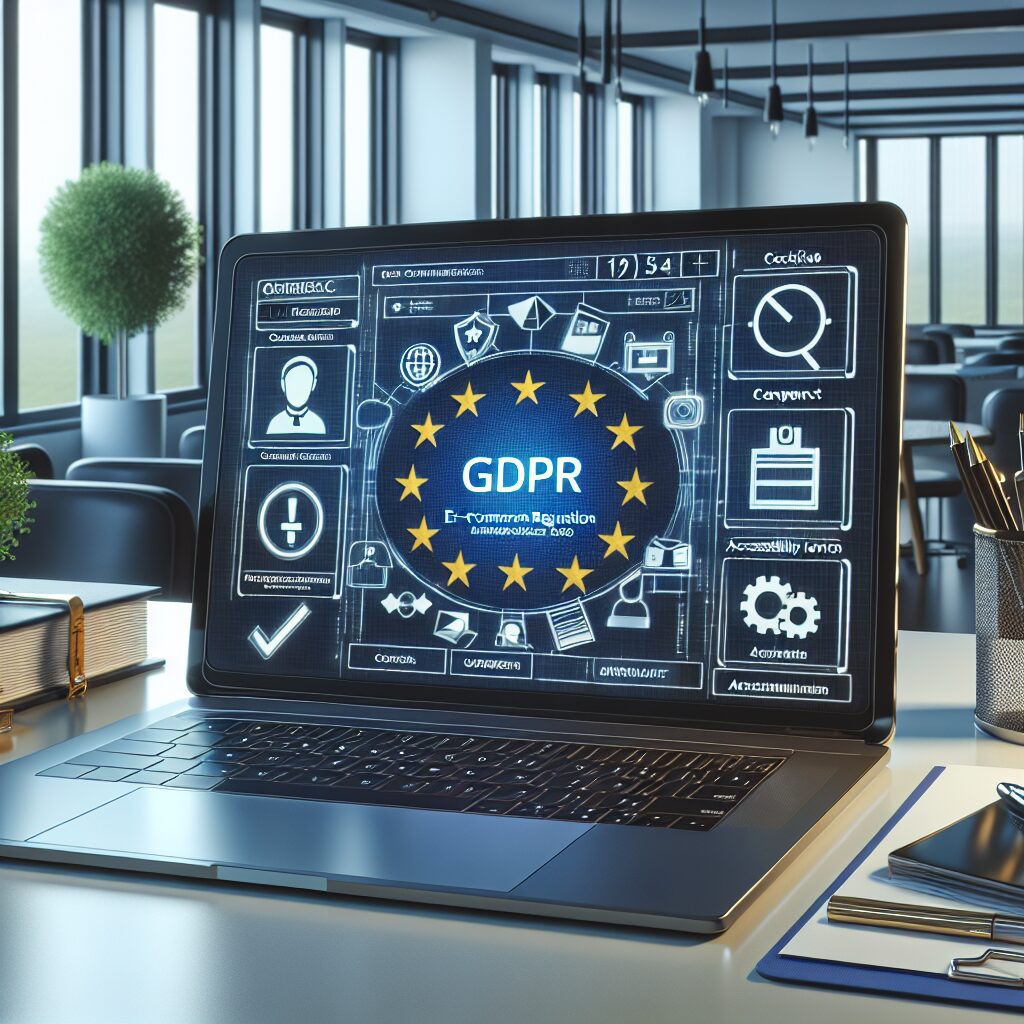About eldris
At Eldris, we automate SEO, multilingual site expansion, and EU compliance for brands scaling across Europe. Our AI-powered platform handles everything from content publishing to regulatory docs—so you don’t have to.
In This Article
- Any business selling to German customers must complete VerpackG registration via the LUCID system.
- Registration is mandatory before participating in a dual packaging system.
- Packaging must be classified and declared meticulously to ensure legal compliance.
- Annual data reports must be submitted and matched across LUCID and your dual system partner.
- Cross-border sellers, including Amazon and Etsy merchants, are equally obligated under VerpackG.
- Automation tools and expert services like Eldris can significantly ease long-term compliance.
Understanding the German VerpackG Law
Purpose, Scope, and Obligations for Sellers
The German Verpackungsgesetz (commonly abbreviated as VerpackG) is a packaging law enacted to ensure that manufacturers and distributors take responsibility for the life cycle of packaging materials. If you are an e-commerce seller shipping to German customers, you are legally obligated to comply with this regulation. VerpackG registration is the first crucial step to achieve compliance with the law. Without proper registration, you risk high penalties, public listing on non-compliant databases, and even removal from e-commerce marketplaces.
The law mandates that all first-time distributors of retail packaging in Germany register with the Central Agency Packaging Register (Zentrale Stelle Verpackungsregister) under its online system, LUCID. More importantly, sellers must participate in a dual system of waste disposal, classify their packaging, and submit regular data reports. Notably, the focus is not only on traditional manufacturers but also on foreign online retailers who participate in cross-border e-commerce, making VerpackG registration a non-negotiable point for compliance.

Step 1: Registering with the LUCID Packaging Register
How to Create a LUCID Account and What Data to Provide
The central compliance mechanism of the VerpackG law is the LUCID Packaging Register. All obligated parties must independently register on LUCID, even if they use third-party service providers for fulfilment. The process of VerpackG registration begins by creating a LUCID account on the official website of the Zentrale Stelle Verpackungsregister.
To register, you need to provide your business or personal contact information, your VAT identification number, and details about the type of packaging used. After submitting this data, you will receive a registration number via email. This ID is essential — you’ll need it to contract a dual system and file regular declarations. Failure to obtain this number means your packaging is considered illegally placed on the market under German law. Hence, timely and accurate VerpackG registration is imperative to keep your business operations sustainable and legally secure in Germany.
“LUCID registration is not merely a formality—it is a compulsory public record. By registering, you demonstrate environmental responsibility and enhance your business’s credibility in the EU marketplace.”
Step 2: Contracting a Dual System Partner
After you’ve completed the LUCID VerpackG registration, the next critical step is to choose and contract with a certified German dual system partner. Dual systems are authorised waste management organisations tasked with the collection, sorting, and recycling of packaging waste. Participation in such a system ensures that your business contributes its fair share to Germany’s recycling infrastructure.
You must independently select a dual system provider that suits your volume and packaging type. Popular providers include Interseroh, Der Grüne Punkt, and Landbell Group. These systems offer differing rates and services, which should be thoroughly compared. Once you’ve signed your agreement, you’ll receive a licence that matches the categories of packaging you distribute. Importantly, you must report this arrangement in your LUCID dashboard by referencing the name of your system partner. This dual reporting ensures complete transparency and is a cornerstone of legal compliance under VerpackG.
Step 3: Classifying and Declaring Packaging Types
One often-overlooked yet highly vital aspect of VerpackG registration is accurately classifying your packaging. Germany distinguishes between various types of packaging—retail, shipment, and grouped packaging. Each type must be declared precisely, as different waste-processing requirements apply. Mistakes in classification can lead to false declarations, undermining your compliance status.
You must assess all components used in your product’s journey—from product wrapping to shipping boxes, protective materials, tapes, and labels. Once classified, quantities must be calculated and agreed upon with your dual system. Most system partners offer online tools to assist in this assessment. Additionally, this information must be declared both during the initial LUCID registration and through periodic updates. Proper classification is also crucial for cost calculations, since recycling fees are calculated per weight and material type.
Step 4: Submitting Annual Reports and Ongoing Compliance
Initial VerpackG registration is only the beginning. Annual submission of packaging quantities is a legal requirement for all registered businesses. This reporting must be done both to your dual system partner and in your LUCID account. Importantly, the data must match exactly; discrepancies can result in an audit or fines from the Central Agency.
In most cases, businesses must report their packaging volumes once a year by 15 May. High-volume distributors, however, may be required to submit quarterly reports. Audit-proof documentation should be maintained year-round in case of regulatory review. Businesses also have to update their data promptly whenever there are significant changes in packaging usage or system partner affiliation. Ongoing compliance is not optional—it is a dynamic obligation that demands regular oversight.
Common Mistakes to Avoid in VerpackG Registration
Many e-commerce sellers mistakenly assume that their fulfilment providers or marketplaces will handle registration and reporting. This is incorrect and exposes the business to legal risk. VerpackG registration is a non-transferable responsibility that must be undertaken by each distributor placing packaging on the German market.
Other frequent errors include underreporting packaging volumes, failing to update system partner information in LUCID, and classifying packaging inaccurately. Overlooking internal packaging (such as bubble wrap or inner product wrappings) can also cause under-declared weight, triggering compliance flags. Moreover, ensuring deadlines are met—especially when it comes to annual reporting—is critical. Practices like rounding down quantities or estimating materials without documentation can be viewed as deceptive by German regulators.
How VerpackG Affects Cross-Border E-Commerce Platforms
VerpackG is far-reaching in scope and applies not only to businesses located in Germany but also to international sellers shipping to German consumers. If you sell through platforms like Amazon, eBay, or Etsy, and your goods are sent directly to German customers, you must complete your VerpackG registration. No exceptions apply based on company size or sales volume.
Importantly, marketplaces are increasingly holding sellers accountable. For instance, Amazon requires proof of proper EPR compliance, including a valid LUCID registration number and documentation of participation in a dual system. Failure to provide these documents can result in suspension of sales to German customers. Sellers must therefore ensure full VerpackG compliance to maintain access to one of the EU’s largest consumer bases.
This framework ensures that foreign businesses contribute to Germany’s environmental goals, while levelling the playing field between domestic and international sellers. LUCID packaging register official steps
Enforcement and Penalties for Non-Compliance
Germany takes packaging compliance seriously. The VerpackG regulation is enforced by the Zentrale Stelle Verpackungsregister in collaboration with local environmental authorities. Non-compliance can lead to penalties as high as €200,000 per infringement. Repeated failure to comply may also trigger commercial bans, blocking firms from selling in the German market.
The LUCID register is publicly accessible, allowing marketplace operators, competitors, and regulatory bodies to verify your compliance status. Non-registered companies are easily identified and subject to both public scrutiny and formal reporting. Accordingly, proper VerpackG registration is a cornerstone of reputational and legal risk management for any company engaged in e-commerce in Germany.
Automation Tools for Maintaining Compliance
Many businesses, especially SMEs, find ongoing packaging compliance time-consuming and prone to human error. Thankfully, several automation tools are available to help with VerpackG obligations. Software platforms like ecosistant, Reclay Group, and compliance modules integrated into ERP software can track packaging material flows, generate LUCID reports, and automate dual system declarations.
These tools not only reduce the administrative burden but also ensure that deadlines are met, and data accuracy is maintained. Automated volume assessments from warehouse inventory records, alerts for upcoming deadlines, and compliance dashboards can prove invaluable. For companies dealing with multiple EU markets, these solutions often support country-specific EPR compliance requirements, including the German VerpackG. Learn more about EU Product Compliance & Packaging Regulations
How Eldris Helps With Germany’s EPR and Packaging Rules
Eldris provides full-spectrum compliance solutions for international retailers needing support with VerpackG registration and wider EPR obligations. From LUCID onboarding to dual system sourcing and audit support, Eldris offers dedicated consultancy and tech-enabled services tailored to your packaging processes. By using expert-led registration and monitoring, our clients reduce error rates, remain compliant through regulatory changes, and streamline their reporting cycles.
We assist in determining packaging classifications, negotiate optimal system partnership licenses, and offer custom compliance dashboards. Whether you are launching in Germany or expanding existing operations, our strategic approach not only removes complexity but also ensures environmental stewardship. Read a related article
Conclusion and Next Steps for E-Commerce Sellers
[CONCLUSION_CONTENT]
Great guide on verpackg-registration-step-by-step-eu-ecommerce-guide – Community Feedback
Who must register under the VerpackG for e-commerce?
Any online seller shipping packaged goods to German consumers must register with the LUCID Packaging Register to comply with VerpackG requirements.
What are the main steps to complete VerpackG registration?
Register with LUCID, contract with a dual recycling system, input your packaging data, and regularly report quantities to stay compliant.
What happens if I fail to comply with the VerpackG?
Non-compliant sellers risk suspension of product listings, significant fines, and reputational damage within the EU market.








